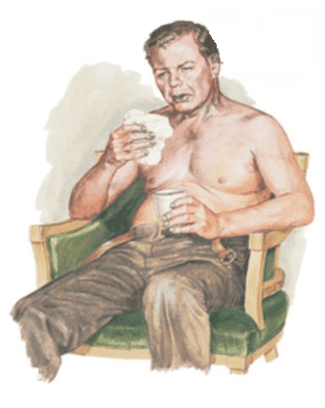Dyspnea or Shortness of Breath
Dyspnea or Shortness of Breath - Serious Causes
Dyspnea is defined as subjective experience of breathing discomfort, Dyspnea can be acute or chronic and it is usually caused by either heart or lung disease.
Trouble breathing is a wider term that may include upper or lower airway disease (swelling of throat or angioedema for example), reduced O2 concentration in inhaled air (high altitude for example) or smoke inhalation. Obesity, anxiety and anemia can lead to the same feeling.
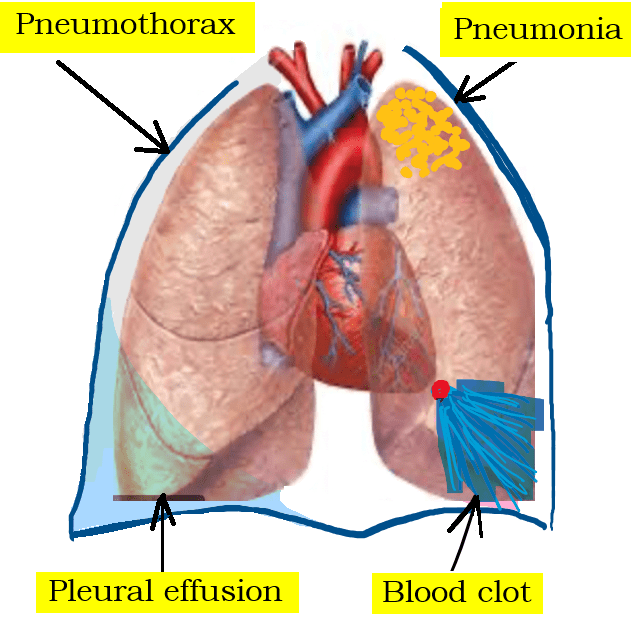
Acute Shortness of breath causes:
- Decreased heart output (weak muscle from a heart attack for example causing Congestive Heart Failure)—> less blood is pumped with each heart contraction —> less blood is delivered to lungs to be oxidized —> Dyspnea
Symptoms: Cough, chest tightness and shortness of breath - Asthma or COPD —> trouble ventilating from tight airways and damaged lung tissue —> increase work ob breathing —> Dyspnea
Symptoms: Coughing, wheezing and trouble breathing - Pneumonia —> infected part is ineffective in oxygen transport —> increase work of breathing to maintain level of oxygenation
Symptoms: Fever, productive cough, dyspnea and chest pain - Pulmonary Embolism (blood clot) —> reduced lung function due to reduction in available O2 exchange —> increase work of breathing —>Dyspnea
Symptoms: Sudden onset shortness of breath with chest pain and palpitation - Pleural Effusion (fluid collection around the lung) —> limited lung expansion —> Reduced lung oxygenation —>Dyspnea
Symptoms: Gradual onset shortness of breath, my have chest pain and cough - Pneumothorax (air leak from one lung causing expanding air bubble in the chest cavity—>lung expansion limitation—>Dyspnea
Symptoms: Sudden Shortness Of Breath And Chest Tightness
Common Causes for Chronic Shortness of Breath or Dyspnea
- Congestive Heart Failure.
- COPD: A- Emphysema B- Chronic Bronchitis

In HF, the heart cannot pump enough blood to organs and tissues. Blood backs up in one side of the heart causing the other side to work harder.
Congestive Heart Failure
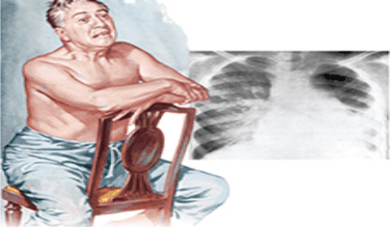
Symptoms of left-sided HF include shortness of breath and fluid in lungs.
Patients may feel better sitting up than lying down.
Symptoms of right-sided HF include swelling of the legs and feet.
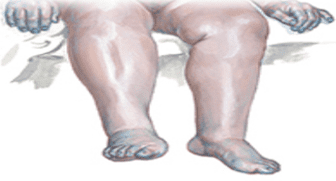
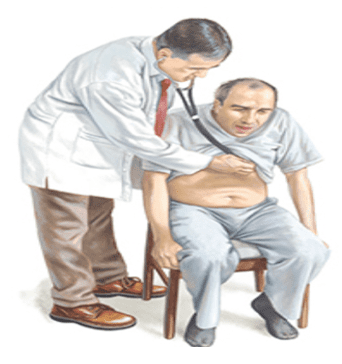
The health care provider listens to the lungs for fluid buildup.
Patients may be short of breath, and lips and nails may look blue.
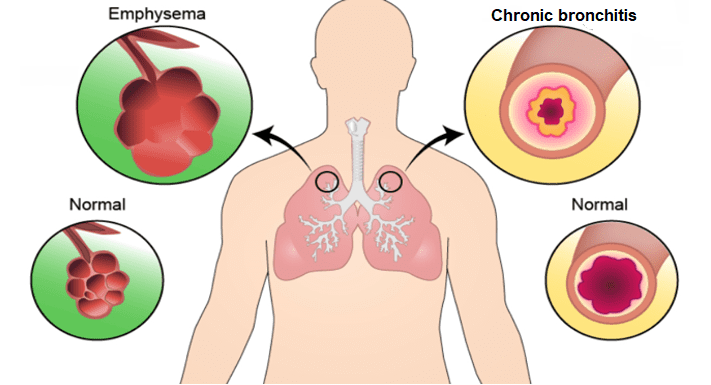
Emphysema
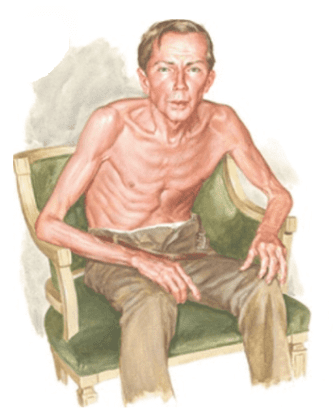
Chronic Bronchitis
